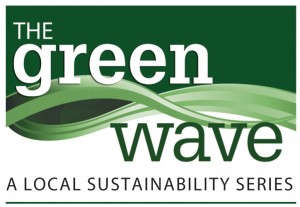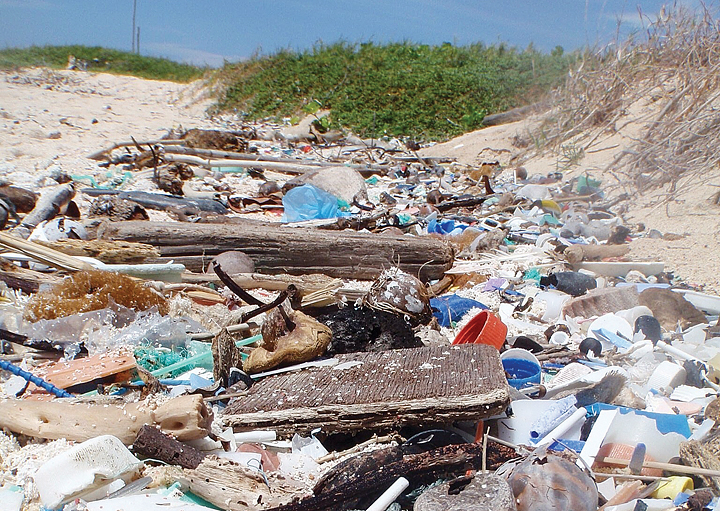 Lifestyle changes are never easy, especially when it concerns a choice that is a common part of everyday life. For Sean Ahlum, a former longtime faculty member of the University of North Carolina Wilmington and founder of the Surfrider Foundation’s Cape Fear chapter, switching to a life free of all single-use plastics was something that has taken commitment, dedication and careful planning.
Lifestyle changes are never easy, especially when it concerns a choice that is a common part of everyday life. For Sean Ahlum, a former longtime faculty member of the University of North Carolina Wilmington and founder of the Surfrider Foundation’s Cape Fear chapter, switching to a life free of all single-use plastics was something that has taken commitment, dedication and careful planning.
Though Ahlum was always conscious of being environmentally friendly, it was not until a trip to Barbados in 2011 that he actually saw some of the effects of plastic marine debris firsthand.
The small Caribbean island of Barbados lies at the southwestern edge of the North Atlantic Gyre, one of the five large, slow-moving ocean current systems around the world that collect plastic debris and circulate it around the ocean.
“I didn’t have any idea of how impactful it really was until I went to Barbados in 2011,” Ahlum said. “We went to this beach on the windward side of the island and it was completely littered with plastic. You didn’t walk on sand, you walked on plastic.”
After discovering yet another beach on the island littered with plastic refuse distributed there by the gyre, Ahlum made the decision to change his lifestyle, dropping one piece of single-use plastic after another.
“It was so hard,” he said. “When I saw that I switched my whole life. My toothbrush is made out of bamboo, my toiletries are all unpackaged like bar shampoo, natural soap, bar face wash. My underarm deodorant is a block and I use a combination of coconut oil, essential oil and baking soda for toothpaste.”
Gathering ideas from other local like-minded enthusiasts like Bonnie Monteleone, and pioneers on the subject like the Five Gyres Institute and Patagonia founder Yvon Chouinard, Ahlum now tries to apply the philosophy to every aspect of his life, even to his hobbies like surfing.
“Every time we add something to our life, I think, ‘How can we reduce the impact?’” Ahlum said. “I switched from riding boards made from polyester resin and polyester foam to epoxy boards with non-VOC epoxy resin.”
While transitioning to a life free of single-use plastics may be easier in places like Southern California, where the philosophy has been in place longer and is more prevalent, Ahlum said a few local grocery stores have facilitated his needs.
“It used to be that I would go to the grocery store, freak out and my wife would get super frustrated, because you walk down the aisles and there is nothing but plastic packaging,” he said. “Take a pasta box; I know what pasta looks like so why not just put it in a cardboard box and be done with it?”
Grocery stores like Tidal Creek Co-op, Whole Foods, Fresh Market and Lovey’s Market have helped in the transition, with Tidal Creek and Whole Foods being those Ahlum most commonly visits. There, Ahlum said he can purchase a multitude of ingredients and foodstuffs in bulk by bringing his own reusable containers. After a little coercing, Fresh Market even let him bring in his own containers for meat from the butcher shop.
Adding to the constraints of being plastic-free, Ahlum and his wife, Jessica, also have to tailor their grocery shopping around her gluten allergy. This has led to the Ahlums’ making many simple items from scratch, like tortillas, wontons and bread.
As a byproduct of choosing to buy unpackaged foods, Ahlum said he and his wife also eat healthier and consume more locally produced foods.
“I eat natural, locally grown food and I know everything that is in my ingredient list because I am not buying prepackaged stuff,” he said. “When you think about the world at large and issues with health, diabetes and weight control problems, it is mostly because people are eating these prepackaged foods that have all this stuff in it that is not natural.”
In addition to storing most of the household’s foodstuffs in glass containers, Ahlum also carries around his own water bottle, coffee mug and set of bamboo utensils to use in coffee shops or restaurants that use single-use plastic tableware and utensils.
“I have been carrying around the same water bottle and coffee mug for eight years and now people say, ‘Oh cool man, your water bottle looks like it has been around the world,’ and it has, so it is a good conversation starter,” Ahlum said.
Though he has succeeded in living mostly free of single-use plastics, Ahlum said the convenience factor is the biggest hurdle to more people catching on.
“The idea of convenience goes out the window,” he said. “It has definitely gotten easier for us over time … but it is such a change.”
In his quest to discover what can be consumed without using single-use plastics, Ahlum often shares his experiences with others who that take interest in the subject. Each new life event presents new challenges, however, and for the Ahlums the next challenge will be how to raise a plastic-free puppy.
“There are challenges with everything but I am thinking like that now and it has just become easier,” Ahlum said.
The Green Wave series will continue Oct. 30 with a report of Wrightsville Beach businesses’ conservation efforts.
email [email protected]




